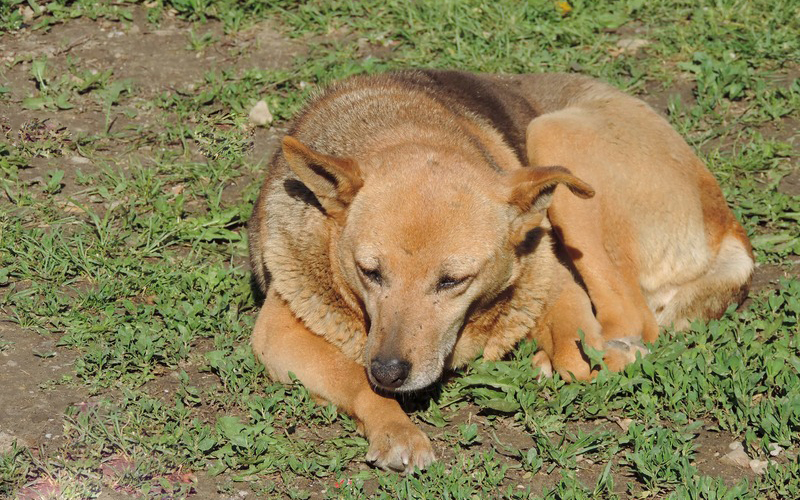Pneumonia in dogs can be caused by lots of different causes, such as viruses, bacteria, parasites, or fungi. Although it rarely occurs, it is still advisable to be informed about it if you have a dog. In this article, we talk about pneumonia in dogs.
Causes of pneumonia in dogs
There are a wide variety of causes responsible for Pneumonia in dogs:
1. A bacterial or viral infection is usually caused by an airway infection, such as canine influenza which leads to pneumonia as it worsens.
2. Treatments with corticosteroids, chemotherapy, or chronic diseases, which weaken the dog’s immune system.
3. Chronic bronchitis and tracheal collapse.
4. Inhalation of a solid or liquid element that infects the lungs.
5. The intake of a toxic substance or smoke causes chemical pneumonia.
No matter the case, if your dog has pneumonia, it can be said to be in danger and needs treatment. If you think your dog has been exposed to any of these causes of pneumonia, go to the vet!
Symptoms of Pneumonia in Dogs
Many times, our dogs are exposed to dangers without us not realizing it, therefore your pet may have pneumonia with you being completely oblivious. Here are the common symptoms of pneumonia in dogs:
● Phlegm cough
● Continuous sneezing
● Fever
● Lack of hunger
● Apathy
● Deep and/or fast breathing
● Difficulty breathing
● Thick mucus discharge
● Elevated heart rate
It is clear that not all symptoms are compatible with each other, that is to say, that pneumonia in dogs can occur differently in each case. Besides, you will need to go to the vet to confirm what exactly is wrong with your pet as some of the symptoms of pneumonia are similar to those of other diseases.
Treating Pneumonia in Dogs
The treatment of pneumonia in dogs is to be performed differently depending on the established cause:
If the bout of pneumonia is caused by the ingestion of a foreign object, it will require the object to be sucked out for it to be removed.
If the pneumonia is caused by bacteria, your dog will need antibiotic treatment for several weeks.
Similarly, if it is for a virus, fungi, or parasites, the most appropriate medications should be sought for each case.
In any case, bronchodilators are useful medications to make it easier for your dog to breathe.
A visit to the veterinarian is very important, most especially if your dog has a fever and snot. Don’t give it cough syrups! It’s good that the dog coughs up to expel all mucus. X-rays will be done periodically during the process to monitor the evolution of the lungs.
The treatment of the disease depends on how serious the attack is. Although most cases of pneumonia in dogs that are caused by bacteria or viruses are usually cured without much assistance, in the case of inhalation-caused pneumonia, the dog may die if it does not get adequately treated.


